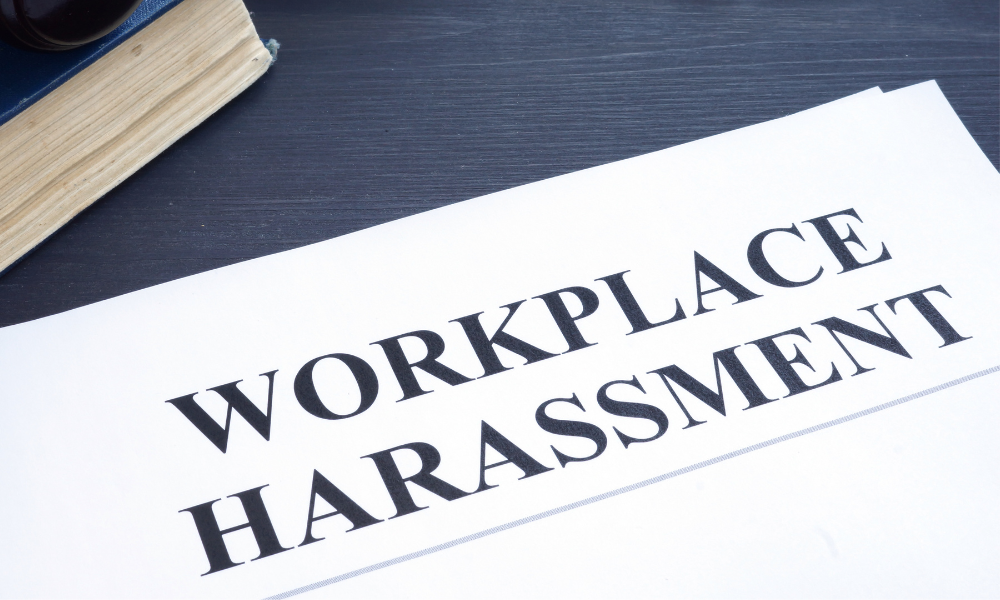
HR consultant and author gives his top tips for preventing workplace sexual harassment

There is very little data on workplace sexual harassment in Singapore – one of the only surveys conducted around the subject was published by gender equality organisation, the Association of Women for Action and Research (AWARE). A 2021 survey of 1,000 people that found two in five workers have been sexually harassed in the workplace in the past five years and disappointingly only three in ten people who were sexually harassed reported it.
The “harassment situations” indicated in the survey included pictures, jokes, texts or gestures of a sexual or sexist nature, alarming or offensive remarks or questions about appearance, body or sexual activity, crude and distressing remarks, jokes or gestures of a sexual or sexist nature, unwanted physical contact, attempts to initiate romantic or sexual relationships, implications that career prospects were tied to sexual favour.
At the time of the survey’s release, the head of research at AWARE, Shailey Hingorani said “we have known for years that workplace sexual harassment is a problem in Singapore. However up until now we have not had national data on its prevalence. This changes that.”
Read more: TAFEP ends probe on Ubisoft Singapore over alleged sexual harassment
There are no strict legal requirements for employers in Singapore to prevent sexual harassment in the workplace. The government does encourage businesses to be proactive in preventing workplace harassment through the Tripartite Advisory on Managing Workplace Harassment.
The advisory has released guidelines on workplace harassment that the government announced last year it intended to enshrine into law but now, it’s largely left up to organisations to develop their own internal policies.
Singapore HR consultant and trainer, Martin Gabriel gave HRD insight into what businesses can do to get ahead of sexual harassment in their companies.
Institutionalise policies that would enable victims to lodge a complaint to higher management, if they feel that they are being harassed or feel uncomfortable by another colleague who puts them in a zone where they feel humiliated, threatened, or fearful for their own safety to matters that are not work related but sexual in nature or any behaviour that is inappropriate. A proper whistle blowing process to get senior management’s attention would enable them to watch more closely, and thereby minimising any attempts by the ‘perpetrator’ from creating ‘work’ opportunities that could be exploited. This can be done, 24/7 to a designated channel.
Policies could at least be crafted in a way that minimise opportunities for any temptations, even from a senior Executive to subordinates. Examples, the necessity to bring their subordinates on a business trip, and the dos and don’ts when traveling alone. These are the little things that can send a message to the would be ‘perpetrators’ who may be thinking about it or crafting opportunities for themselves to exploit.
Promotions, job hiring opportunities should be based on performance and not sexual orientation. The tool to be used would be the performance appraisal. It should be done in good faith by at least 2 persons, and even from those receiving the work, not just one person (manager). This is to moderate the evaluation and prevent any one person from abusing his/her power. Even neutral elements like customers feedback can form part of the evaluation process. This can prevent someone from falling victim to flaws of the PA, i.e., likeability or not.
Read more: VP asked to resign over undisclosed sexual harassment claim
The PA offers a chance to the employee from speaking up and sometimes can trigger pent up frustrations kept quiet as it probes, and in a way is exploratory in nature. PAs are never about disciplining someone but rather coaching and developmental. It is also to listen, not tell. I believe it’s a very good tool to gather information. It’s not just about one’s performance but also how they have been treated by others. The only setback is that most companies do it once or twice a year, but anyway it’s an added option.